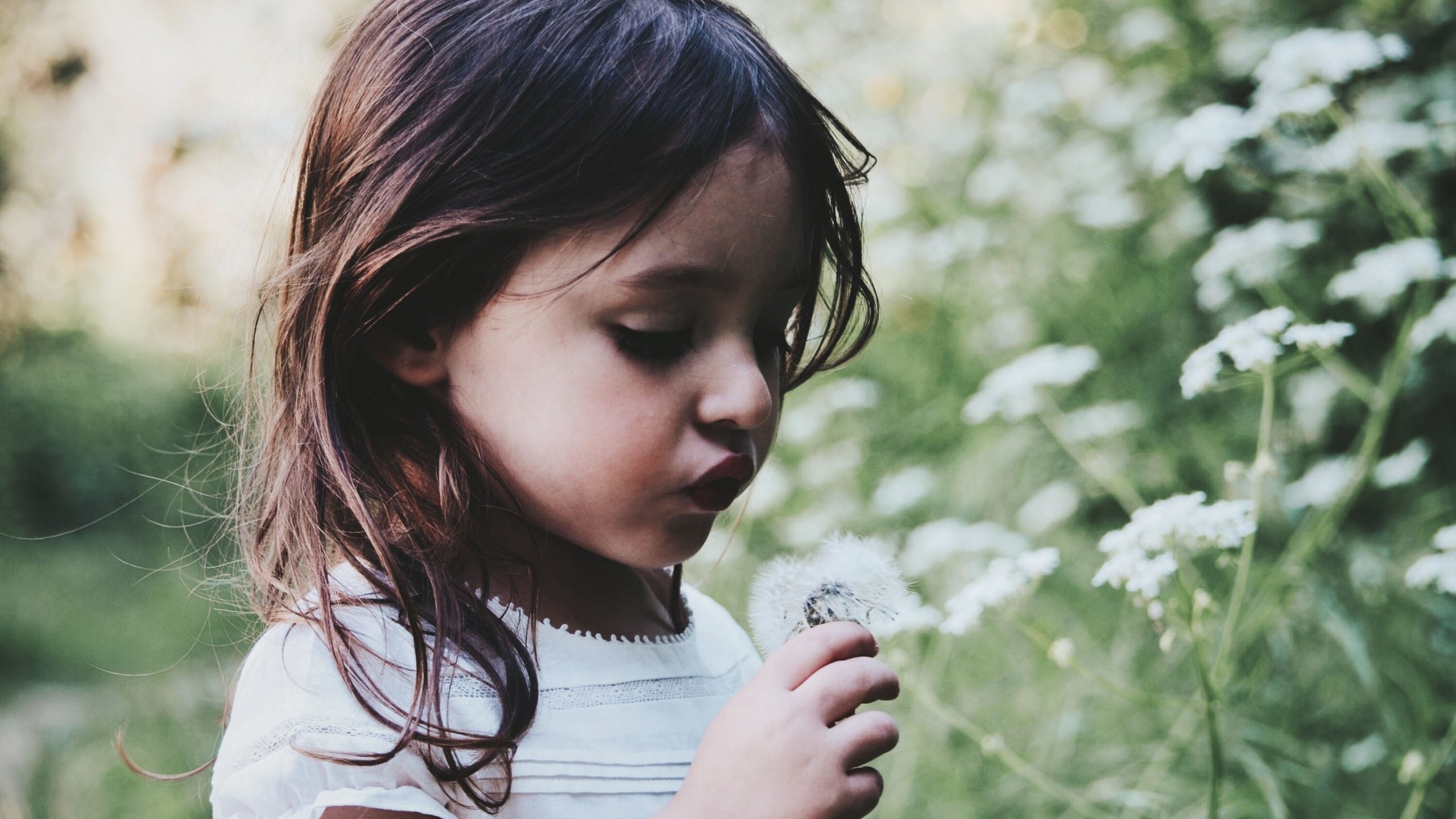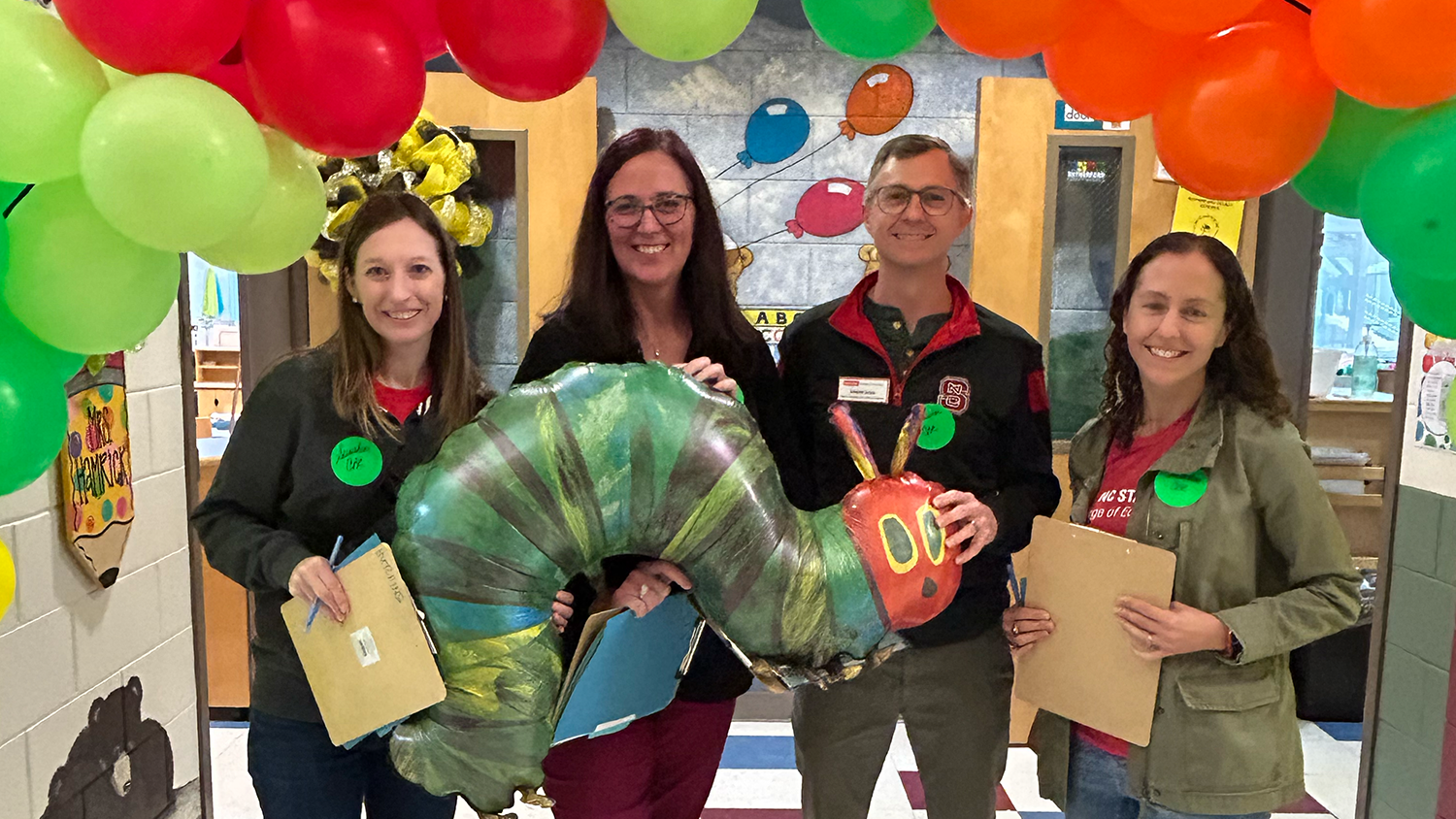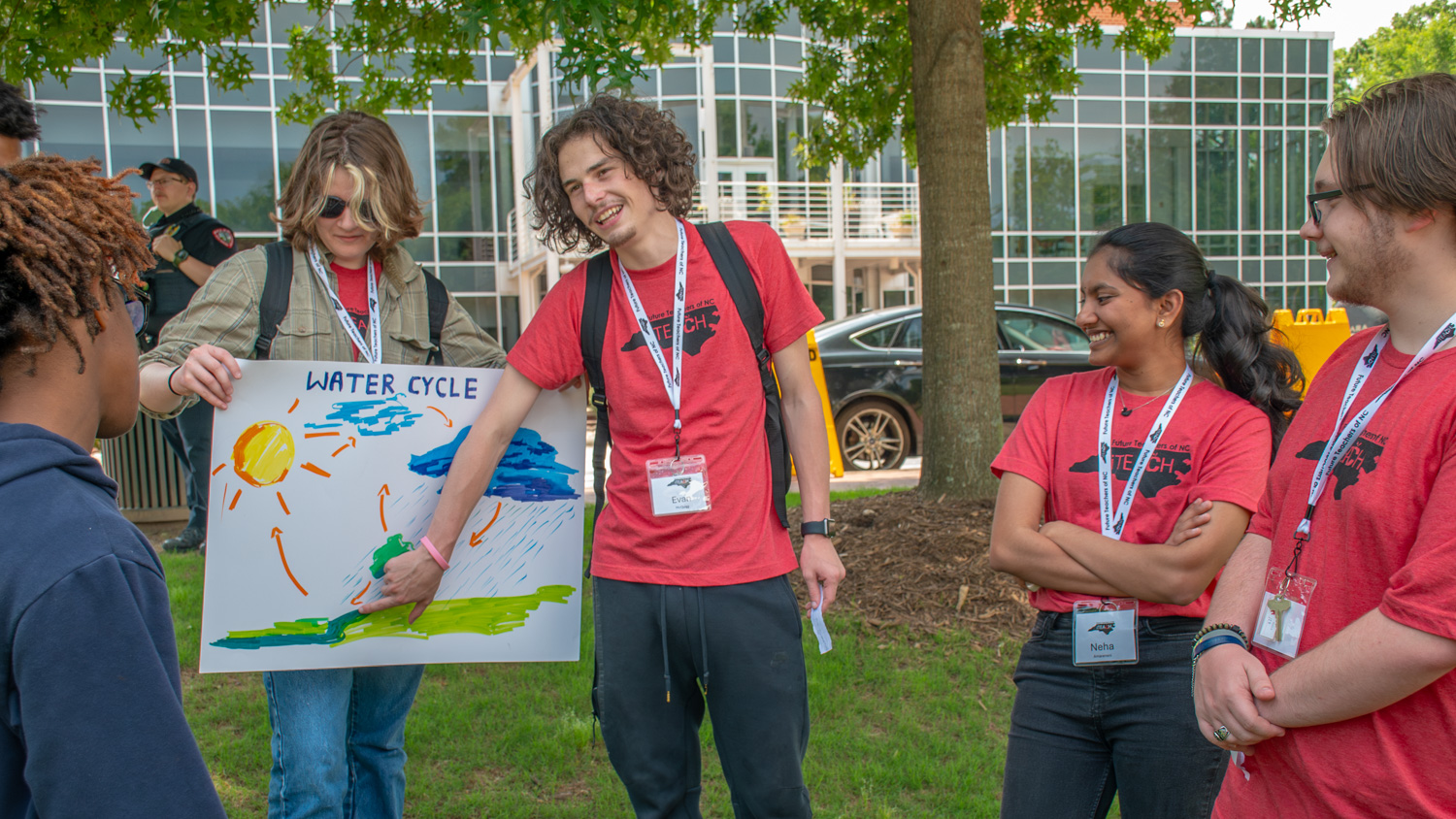Addressing Issues of Childhood Trauma Through Picture Books

Children’s books can serve as a powerful catalyst for addressing serious issues and helping students cope with childhood trauma, says NC State College of Education Associate Professor of Literacy Education Angela Wiseman, Ph.D.
She has curated a list of children’s literature that can help teachers and parents address serious issues such as parental incarceration, addiction and parental loss with young readers. She also highlights several online resources that can help educators connect students who have experienced trauma with appropriate support.
[button] Download the Full List[/button]
Further Reading: Children’s Literature
Ruby on the Outside by Nora Raleigh Baskin: Eleven-year-old Ruby Danes wonders if she can tell her new friend, Margalit, that her mother is in prison — a choice that becomes complicated when she learns Margalit’s family history might be connected to the event that led to her mother’s arrest.
Boats for Papa by Jessixa Bagley: This story explores the emotions associated with loss through the tale of Buckley, a young child who carves boats and sends them out to sea, believing the ones that don’t return have found their way to his Papa, whom he misses.
My Dad’s Dream for Me by Daniel Beaty: This book highlights the love an absent parent can leave behind and the strength that children find in themselves through the story of a young boy’s game with his father and what happens when the father is no longer around to play.
Hey, Kiddo by Jarrett Krosoczka: This graphic novel shares the story of a young boy who tries to lead a “normal life” while living with his grandparents and expresses himself through drawing as he copes with his mother’s struggles with drug addiction and the fact that he doesn’t know his father.
Drawn Together by Minh Lê: When a young boy visits his grandfather, their lack of a common language leads to confusion, frustration and silence. But as they sit down to draw together, the two form a bond that goes beyond words through their shared love of art and storytelling.
The Journey by Francesca Sanna: Through the story of a mother and her two children, this book explores the difficult experience of leaving everything you know behind and moving to a strange and unfamiliar place to seek a better home.
After the Fall: How Humpty Dumpty Got Back Up Again by Dan Santat: Following the story of what happens to the nursery rhyme character after the fall, this book shows that amazing things can happen when you conquer your fears.
Let’s Go See Papá! By Lawrence Schimel: Told from the perspective of a young girl, this story shares the experience of having an absent parent as well as the need to leave your home country and the people you know to find a new life elsewhere.
Visiting Day by Jacqueline Woodson: This book shares the story of the monthly reunion of a young girl and her incarcerated father by sharing the ways in which the girl, her grandmother and her father all prepare for the visit.
Online Resources for Educators
Top 10 Things Every Teacher Should Know About Children of Incarcerated Parents: With many years of experience working with children of incarcerated parents, many programs, teachers and youth workers asked Project Avary for advice and suggestions to help them better serve this population.
Our Children’s Place: A North Carolina program that advocates for and provides educational resources related to ensuring the well-being of children with incarcerated parents.
Pain of the Prison System (POPS), The Club: Established and maintained inside high schools nationwide, POPS provides a safe, nurturing space as well as tools for self-expression and self-empowerment for teens impacted by incarceration or detention.
Sesame Street in Communities: Coping with Incarceration: This website offers bilingual, multimedia tools and activities to help children cope with the overwhelming emotions that can accompany parental incarceration as well as help caregivers start conversations and answer questions surrounding the topic.
The National Resource Center on Children and Families of the Incarcerated: The oldest and largest organization in the nation focused on children and families of the incarcerated, NRCCFI includes a state and nationwide directory of programs for children with incarcerated parents as well as a library of helpful materials and fact sheets.
- Categories:


